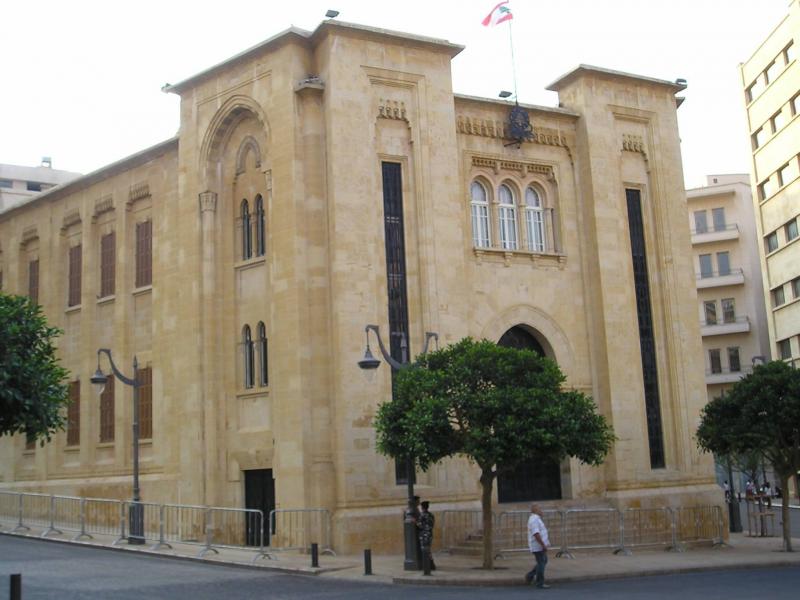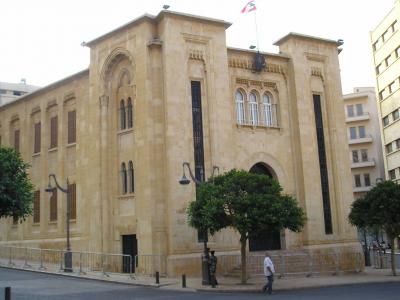The members of "Change Forces" in the Lebanese parliament are preparing to embark on a new organizational experience, different from what was established during their success in the parliamentary elections in May 2022, considering their amicable split after they found it impossible to continue as a single parliamentary bloc. This was due to their differing approaches to key political issues such as electing a president, renewing the terms of security heads, and their dealings with opposition forces, as there are several common denominators that could establish a dialogue without preconditions, unlike their relationship with deputies affiliated with the resistance axis, with whom there’s no possibility of convergence, as reported in "Al-Sharq Al-Awsat."
Although the "Change Forces" deputies (numbering 12) agree on prioritizing the election of a president of the republic in accordance with the Lebanese constitution, and implementing UN Resolution 1701, which restricts the presence in the southern Litani area to the Lebanese army and international forces (UNIFIL), directly rejecting a partnership with "Hezbollah" in that area, their unified approach to the presidential file by nominating former ministers Ziad Baroud and Nassif Hiti, and former deputy Salah Henein did not last long. This was due to some members of "Change Forces" proposing new names without consensus, notably businessman Slim Michel Edde and university professor Issam Khalifa.
Despite their nomination of Edde being met with his objection and accusations of the proposer, MP Melhem Khalaf, and Khitī wishing them not to nominate him, some deputies later supported opposition candidate Michel Moawad, particularly from Waddah Al-Saad and Mark Doue. Meanwhile, Michel Douaihi backed Henein, as later others supported Khalifa, and then Baroud, until 9 deputies from "Change Forces" settled on supporting former minister Jihad Azour, which was backed by the opposition and the "National Liberal Movement," alongside "the Democratic Gathering" during the recent election cycle against his rival from the resistance axis, former deputy Sleiman Franjieh of the "Mard party", except for deputies Halimeh Al-Qaqour, Elias Jarada, and Cynthia Zarazir who voted in favor of Baroud.
However, the disagreement among the Change Forces quickly surfaced publicly after they could not control the increasing differences over several political issues raised. This led Douaihi, who had been absent from their regular meetings for some time, to announce, prior to the last legislative session that approved the law proposal extending the terms of security heads, an agreement with his colleagues Al-Saad and Doue to form the "Change Alliance".
The announcement made by Douaihi about his and his colleagues' exit from the Change Forces bloc coincided with their support for extending the terms of the security heads. Meanwhile, some of his peers decided to boycott the session by occupying seats designated for journalists and guests at the session, while deputies Elias Jarada and Halimeh Al-Qaqour, who are in contact with MPs Abdurrahman Al-Bazari, Osama Saad, and Charbel Massad to form an independent parliamentary bloc, boycotted it. In contrast, Cynthia Zarazir appears to be isolated, having been absent from attending sessions and committee meetings.
Douaihi's announcement to form the Change Alliance was not surprising for his fellow change-makers, as they had joined opposition meetings, both regular and emergency, meeting with their colleagues Al-Saad and Doue, and notably with French minister Jean-Yves Le Drian and various accredited Arab and foreign ambassadors to Lebanon. They also maintained communication with MPs from the "Democratic Gathering" and others belonging to the resistance axis, especially regarding matters related to parliamentary committee meetings.
Despite Douaihi, Al-Saad, and Doue joining the Change Alliance, this did not hinder them from constantly communicating with their colleagues in the Change Forces to agree on all proposals and draft laws included in the agenda of parliamentary committee meetings. Their main criticism of their fellow change-makers is their unrealistic approach, especially regarding the extension for security heads, arguing it is inappropriate to involve the military institution during a vacancy in army leadership when there is an urgent need to bolster the army and provide all support necessary to prepare it for implementing Resolution 1701 and preventing the presence of illegal weapons in southern Litani as a condition for restoring state authority over all Lebanese territory.
Thus, there is no disagreement within the Change Forces on the position regarding Hezbollah's weapons, but the core divergence, as their sources tell "Al-Sharq Al-Awsat," lies in that there is no justification for refraining from extending the term of Army Commander General Joseph Aoun. Therefore, even though the Change Alliance bloc is newly born, it does not favor its colleagues' insistence on entirely engaging negatively with other parliamentary blocs, consistent with the slogan raised by the change groups at the outset of the revolution against the ruling regime, which bears responsibility for Lebanon’s economic collapse. Otherwise, how could the change-makers play a role in leading Lebanon to recovery if they equate everyone and place them in a single category instead of opening channels of communication with certain blocs to rescue it from being controlled by the resistance axis? Consequently, is there any justification for participating in elections if there’s a prior decision to remain isolated from others in parliament?
Thus, the emergence of the Change Alliance bloc from the Change Forces bloc will undoubtedly pave the way for the formation of new blocs. The majority tend towards creating a bloc composed of deputies Boula Yacoubian, Ibrahim Mneimneh, Firas Hamdan, Yassine Yassine, Melhem Khalaf, and Njata Saliba, while the latter two continue to communicate with their fellow change-makers, starting from Douaihi, Al-Saad, and Doue, ending with Al-Qaqour and Jarada who are preparing to ally in a new parliamentary bloc that will unite them with MPs Al-Bazari, Saad, and Massad.
In light of the initiative of the change deputies to align themselves in newly formed parliamentary blocs, all of them, except Yacoubian, are preparing to enter a new organizational experience different from what existed before their initial joining of the parliamentary advisory group, as Yacoubian has experience in opposition and the intricacies of the parliament, and she has exhibited considerable persistence in fighting against the ruling regime, making her a spearhead in running for elections in the Beirut I district (Ashrafieh) against her staunchest competitors, whether from the Kataeb Party, Lebanese Forces, Tashnag, or the National Movement.




